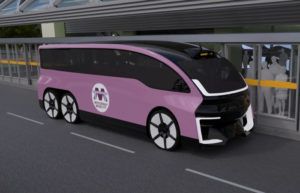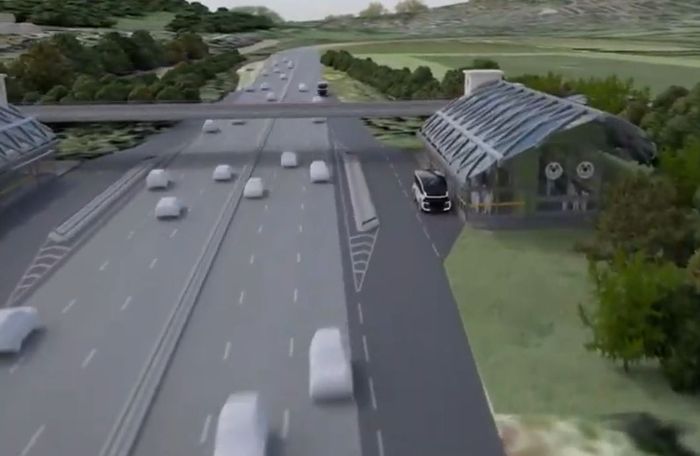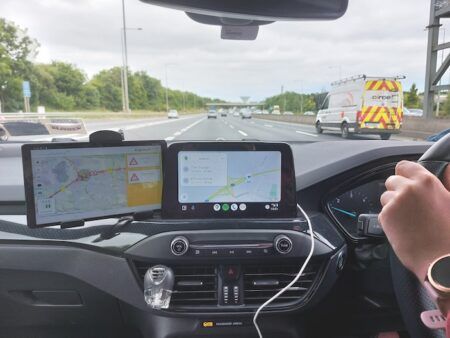A newly announced project from the UK’s Connected Places Catapult (CPC) will use autonomous technology to reimagine the country’s motorways as an extensive public transport network using self-driving, electric vehicles and roadside stations.
The CPC’s ‘Motorway Mobility’ project, funded by Highways England (HE) and supported by innovative vehicle manufacturer Arrival, could provide a whole new mode of high-capacity, demand-responsive public transport. The vision of ‘Motorway Mobility’ is to use the existing motorway infrastructure together with autonomous vehicles (AVs) and new transport hubs near to the motorway, to provide new or more frequent services between a wide variety of locations across the country.
The CPC and other industry experts suggest AVs could significantly reduce the cost of providing public transport for operators and provide a means to reduce private car use and congestion. This concept enables a new way of delivering public transport, with a larger number of smaller vehicles that could better respond to passenger demand and reduce waiting and journey times. The Motorway Mobility initiative would also make new route options possible, particularly in areas that are not well served by existing public transport services.
The CPC will explore how vehicle manufacturers, autonomous control system developers, small and large companies, local employers, local authorities, public transport operators, social-behavioral experts and other organizations can work together to create this new public transport mode. It is hoped the solution will be scalable across the whole of the UK’s motorway network and beyond, in the future. The Catapult is currently looking for other innovative, forward thinking businesses to engage with for potential future phases of the project.
“The Motorway Mobility concept can be imagined as a new rail network, for which our existing motorways are the rails and automated vehicles are the self-driving carriages. It enables the whole of the motorway network to be reimagined as a public transport network,” explained Neil Fulton, the CPC’s chief operating officer. “This feasibility study will explore how frequent and convenient services of this type throughout the day and night could enable users to switch from the private car to public transport. This will give people back some of their free time that was spent driving, during which they could catch up on work or simply relax. This will also lead to reduced congestion, improved safety, reduced public transport journey times and will create new business opportunities.”
To watch a video of the concept, go to: https://www.youtube.com/watch?v=ac_NGJhrSBg





